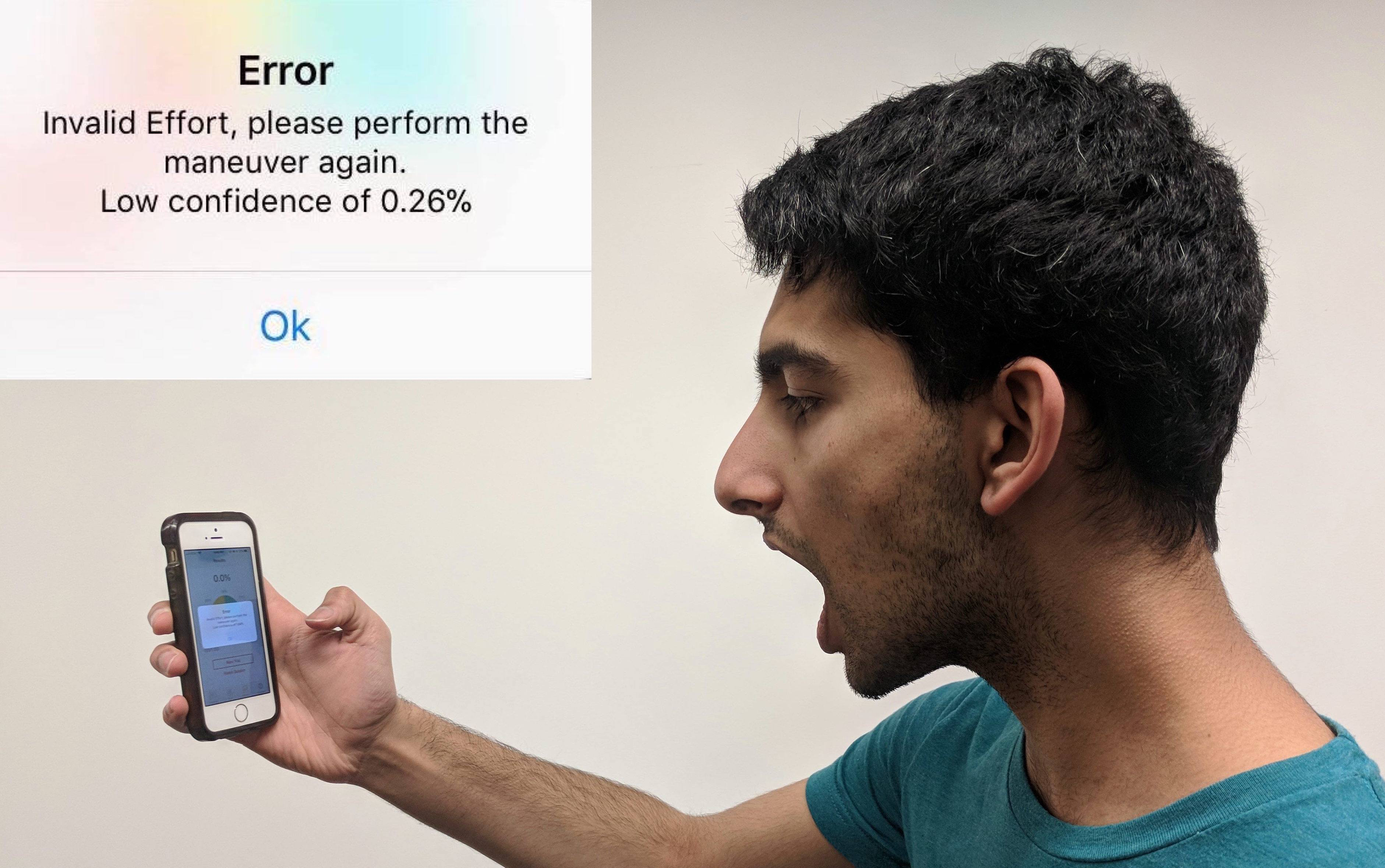@inproceedings{Viswanath:2018:SC,
author = {Viswanath, Varun and Garrison, Jake and Patel, Shwetak},
title = {SpiroConfidence: Determining the Validity of Smartphone Based Spirometry Using Machine Learning},
booktitle = {Proceedings of the 2018 EMBC Conference on Engineering in Medicine and Biology Conference},
series = {EMBC '18},
year = {2018},
location = {Honolulu, Hawaii},
numpages = {12},
publisher = {IEEE},
address = {New York, NY, USA},
keywords = {machine learning, spirometry},
}

